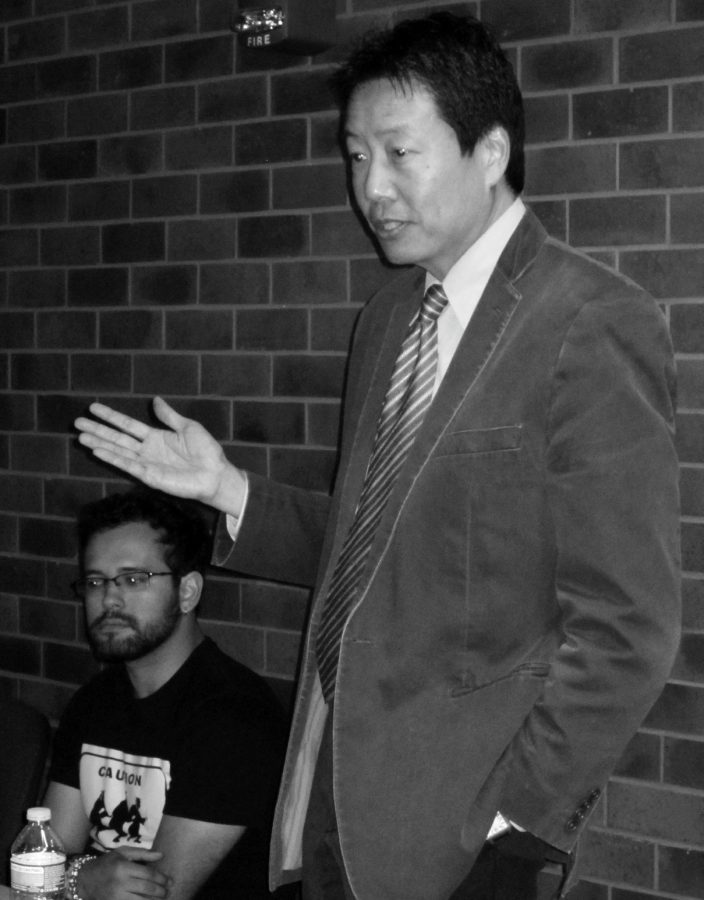Access to an eduction is an integral part of the American Dream. From childhood, our society tells us that knowledge is our right and our public education system is supposed to provide it to us at an affordable rate. For millions of students in the United States, this is not the reality.
Undocumented students, many of whom came to the U.S when they were too young to remember, are unable to apply as in-state students to their public universities, unable to qualify for scholarships, and unable to apply for financial aid because they do not have a Social Security number. The current system has effectively barred many potential students from pursuing higher education and a chance at a better future.
On October 14, 2010, the UMB Labor Resource Center hosted “Undocumented Students and the American Dream,” an event about the work that students are doing to fight for their education and push the DREAM Act forward. Professor Kent Wong, Director of UCLA’s Center for Labor Research and Education, Carlos Amador, graduate student at UCLA and DREAM Act activist who participated in a 15-day hunger-strike last summer, and UMass Boston’s own Renata Teodoro, Development Director at the Student Immigrant Movement (SIM) here in Massachusetts were featured speakers at the event that drew a crowd of over thirty.
All three of the guests spoke of the powerful civil rights movement that has grown in support of undocumented students. In Boston, SIM has fought tirelessly and courageously through demonstrations, including a 19 day vigil outside the State House in response to anti-immigrant amendments that had been added to the state budget. On September 21st, while watching the Senate vote down the DREAM Act outside of JFK library, supporters refused to be defeated and remained, chanting “we will learn, we will serve, we will dream.”
Professor Wong believes the passing of the DREAM Act is not a matter of if, but when. Civil disobedience is the foundation of America, and students once again are rising up to demand their rights. As a professor at UCLA he has seen these challenges firsthand, as 26% of California students are undocumented, and he has long supported immigrant movements. Along with research assistants he assembled a book entitled ‘Underground Undergrads’, which tells the stories of undocumented students.
Out of the 21 million undocumented in the United States, 2 million of them are under the age of 21. This a huge demographic that can no longer be ignored. Young people are being denied education, jobs and even drivers licenses – and there is no way in the current system to legalize them. With 70% of the United States supporting the DREAM Act it appears that it is time our government catches up to the people.
What is the Dream Act?
The DREAM Act, or the Development, Relief and Education for Alien Minors Act, was first introduced to the Senate on August 1, 2001. If passed, the Act would allow those with a GED or high school degree who have been living in the United States for at least five years and are under the age of 35 to apply for conditional legal status for six years. During that time, the individual would have to graduate from two years of college or serve two or more years in the United States military. After completion the individual would then be able to apply for citizenship. On September 21st, 2010, the DREAM Act, along with Don’t Ask, Don’t Tell, went to the floor in the Senate. The bill was filibustered by every Republican senator and one Democrat. As the vote for cloture was 56-43, and a 60 vote majority is required to override a filibuster, this effectively stopped the bill from coming to a vote. On September 22, 2010, Senators Richard Durbin and Richard Lugar reintroduced the bill.





















































